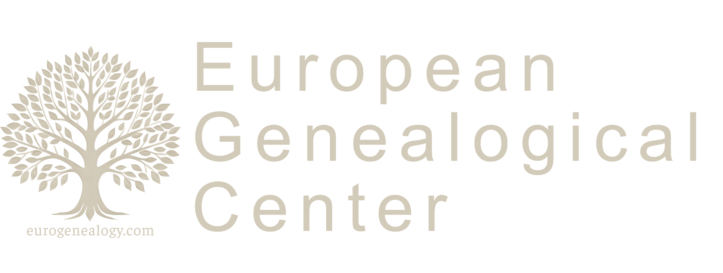Genealogical research in Italy: tracing ancestors & family tree restoration
Discover your ancestry dating back to the 16th century
Archival search and family history research in Italy
Exploring your family history in Italy opens a richly layered window into the past, where individual stories unfold against centuries of cultural brilliance, religious tradition, and regional diversity. Italy’s historical landscape — shaped by Roman legacy, medieval principalities, papal states, and unification in the 19th century — has given rise to a wealth of archival records that reflect both local identities and broader Mediterranean connections. From the Alps to Sicily, each region preserved its own traditions of recordkeeping, often influenced by the Catholic Church, municipal authorities, and foreign dominions. At the European Genealogical Center, we guide clients through Italy’s multifaceted archival systems, reconstructing ancestral lines and breathing life into historical narratives. Our work is grounded in expertise with historical documents dating as far back as the 16th century, often written in Latin or early Italian, and housed in diocesan, state, or municipal archives.
To conduct genealogical research in Italy, we draw upon an extensive and varied array of historical sources. Central among them are parish registers, which document baptisms, marriages, and burials regardless of social standing. These records, maintained primarily in Catholic parishes and often written in Latin, represent the backbone of Italian genealogical investigation. After the unification of Italy in the 19th century, civil registration became mandatory, with birth, marriage, and death records created in Italian by local authorities. These civil acts frequently contain rich biographical detail — including names of parents, witnesses, occupations, and places of origin — offering insight into both family structures and social dynamics. Beyond vital records, we consult population censuses (such as the Stato delle Anime and Anagrafe registers), military service records, tax documents, guild lists, and notarial acts such as wills, dowries, and land transactions.
Sources of genealogical research in Italy
Italy’s regional and linguistic diversity adds meaningful layers of depth and complexity to every genealogical project. In areas such as South Tyrol, Sardinia, or the Aosta Valley, archival documents may also appear in German or French, reflecting historical governance and cultural overlap, while older local records in regions like Veneto, Sicily, or Campania often bear the influence of Venetian, Sicilian, or Neapolitan dialects. Our researchers approach each case with historical sensitivity, paleographic skill, and linguistic precision, carefully decoding archaic handwriting styles and regional terminology to accurately trace ancestral lines and their connections. Special attention is paid to patterns of migration, both within Italy’s borders and abroad — particularly in cases where Italian families relocated to the Americas, Australia, or Northern Europe, as well as family movements across Mediterranean trade routes. We also examine ecclesiastical records produced under foreign administration, such as those originating from periods of Austrian or Spanish rule, which may follow distinct bureaucratic formats and recordkeeping standards unique to the time.


In addition to core sources, we explore supplementary archival materials that provide insights into everyday life, property, education, and occupation. These materials include cadastral maps, land registries, military drafts, school enrollment records, and professional guild documentation. For urban families, we often turn to historical maps and building plans, which help us visualize the places where they lived and worked. Notarial archives, particularly rich in Italy, hold contracts, testaments, dowry agreements, and other legal documents that are essential for tracing family connections across generations. In rural regions, tax assessments, property transfers, and agricultural records offer additional context, revealing land ownership, inheritance trends, economic conditions, and local trade practices. Migration records, such as passenger lists and customs declarations, further enrich family histories by tracing the journeys of ancestors to and from Italy. Each genealogical project is conducted with scholarly precision and cultural sensitivity, transforming simple names in a register into detailed, historically accurate family stories that honor the legacy of Italian ancestry.
Neighboring countries where we conduct research
Examples of our research
Below you can review examples of research reports received by our customers:
Prices for genealogical services in Italy
You can find a detailed price list and description of all services of European Genealogical Center here
Prices for genealogical services in Italy
Genealogical research
From €1500
Tracing family history back to the 17th century
Biographical search
From €800 to €2000
Establishing the life story of an individual and their close relatives
Nationality confirmation
From €500 to €1500
Identifying details about a person’s ethnic origin
Document search
From €200 to €1200
Obtaining certificates, parish registers, and civil registry records
Family history book
From €2500
Creating a unique publication describing the genus history
Family history website
From €2000
Development of a personal website dedicated to your family’s history
Submit a request, and we will contact you shortly
You can also reach us directly by sending an email to: european.genealogical.center@gmail.com or writing to us in Telegram

european.genealogical.center@gmail.com
© 2026
All rights reserved
All rights reserved
Contact us:

